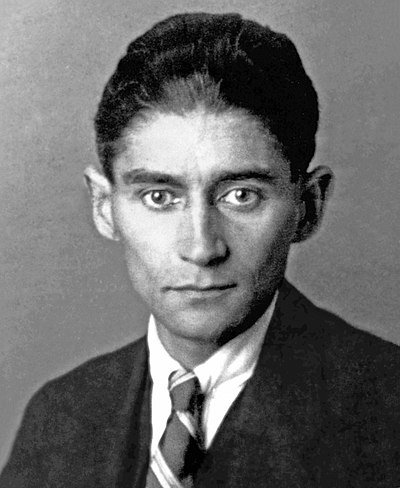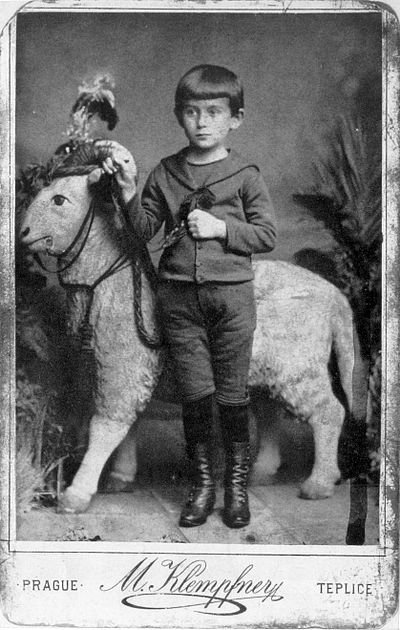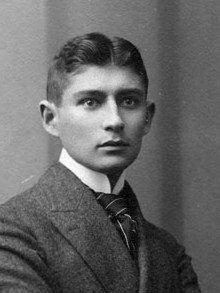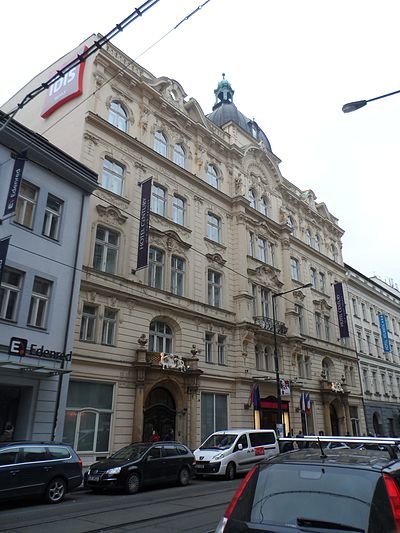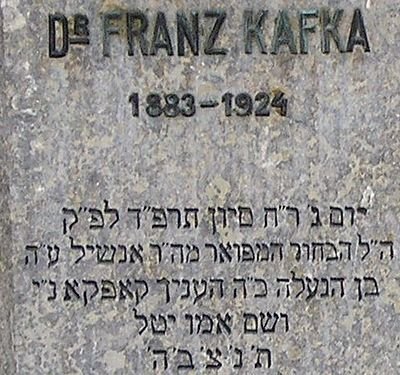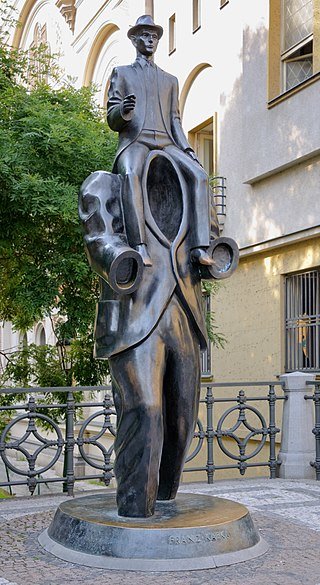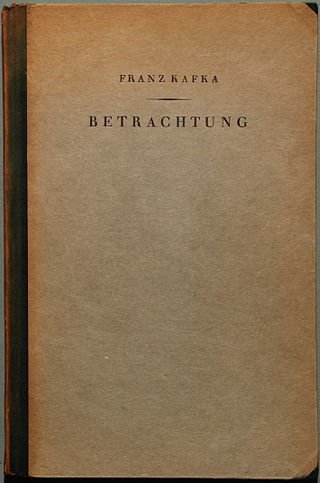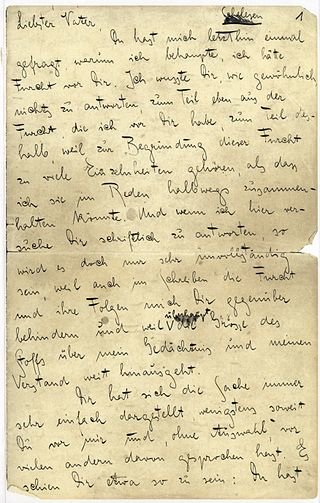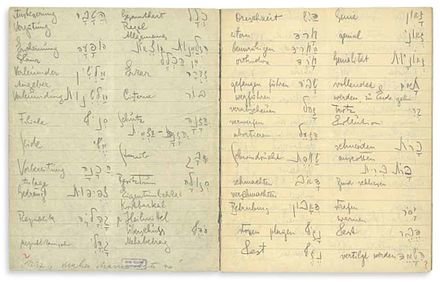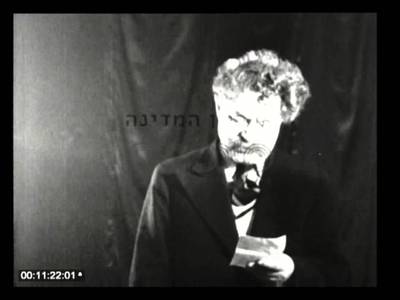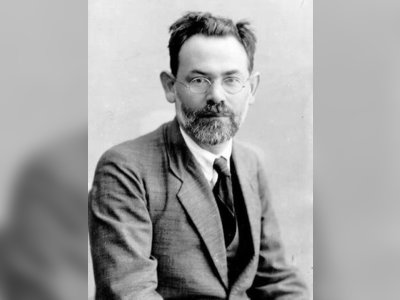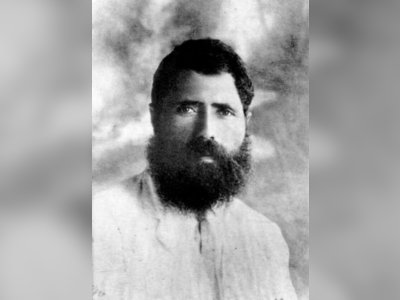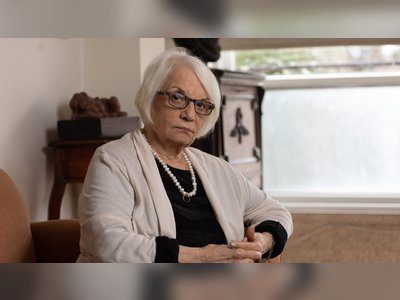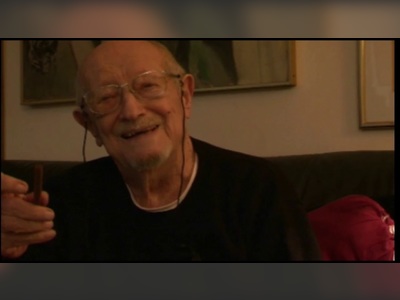Franz Kafka: A Literary Genius of the 20th Century
Franz Kafka's literary genius and his exploration of themes related to the human condition, alienation, and the absurdity of existence have secured his place as one of the most influential writers of the 20th century. His works continue to be celebrated and studied for their depth, complexity, and relevance to contemporary discussions of identity, power, and society. Kafka's legacy extends far beyond literature, touching upon philosophy, psychology, art, and popular culture, making him a timeless figure whose impact endures in the 21st century and beyond.
Franz Kafka, born on July 3, 1883, in Prague with the Jewish name Anschel Asher, is considered one of the greatest writers of the 20th century. Kafka wrote primarily in the German language and is renowned for his minimalist style that blends elements of realism and fantasy.
His protagonists are often isolated individuals grappling with inexplicable and sometimes surreal predicaments, where enigmatic socio-bureaucratic forces hound them without clear justification. Kafka's writing delves into themes of alienation, existential anxiety, guilt, shame, and absurdity.
Kafka's most notable works include the short story "The Metamorphosis" and the novels "The Trial" and "The Castle." The term "Kafkaesque" has evolved over time to describe situations that resemble those found in his writing, particularly the struggles of modern individuals facing powerful bureaucratic systems, the impact of technology on society, and the feelings of estrangement and isolation among people.
Born to a German-speaking Jewish family in Prague, which was then part of the Austro-Hungarian Empire, Kafka was the eldest of six children. His two younger brothers, Georg and Heinrich, tragically died before the age of two, leaving him to grow up with his three younger sisters: Gabriela (Elli), Valli (Vali), and Ottilie (Ottla).
His parents, Hermann Kafka and Julie Löwy, ran a business dealing in legal merchandise, with Hermann having been born in the small village of Wossek. Like many Jews from such villages, he grew up speaking both Yiddish and Czech but also learned German. Franz's mother, Julie, was the daughter of a successful brewery owner, which afforded her a better education than her husband.
In a letter to his father in 1919, Kafka described himself as "a child of the Levy family with a touch of the Kafka strain." This statement unveiled the complex relationship he had with his authoritative and demanding father, who was often described as a "bullying, self-absorbed businessman."
Kafka began his education at a German-speaking elementary school in Prague from 1889 to 1893. At that time, Jewish education was limited, and his Jewish upbringing mainly consisted of attending synagogue with his father four times a year and celebrating his Bar Mitzvah at the age of thirteen.
After completing his elementary education, Kafka entered the state-run German gymnasium in Prague, known for its classical curriculum, strict discipline, and German language instruction. He spent eight years there, successfully passing his final exams in 1901.
In the same year, Kafka enrolled at Charles University in Prague, initially studying chemistry but later switching to law at his father's insistence. This change allowed him a wider range of professional opportunities, and he also took courses in German studies and art history. Among his fellow students at the university was Max Brod.
At the university, Kafka joined a German-speaking student association that organized literary events, reading evenings, and other activities. Towards the end of his first year of university studies, he met Max Brod and Felix Weltsch, who also studied law. On June 8, 1906, Kafka received his doctorate in law, and he worked for a year as an unpaid legal intern in civil and criminal courts.
In November 1907, Kafka accepted a position at the Italian insurance company Assicurazioni Generali, where he worked for nearly a year. His letters from this period reflect his dissatisfaction with the long working hours, which made it challenging for him to focus on his writing. On July 15, 1908, he resigned and, after two weeks, found a more suitable job in a government agency providing workers' accident insurance, where he worked until his departure for Germany in 1923. Despite his frustration, Kafka did not display indifference towards his work and even advanced in his position, showing dedication to his job. Professor Peter Drucker attributed to Kafka the development of workers' safety helmets, although there is no official documentation confirming this from his employer.
Initially, Kafka wrote in German and his literary works were primarily in this language. However, he was proficient in Czech as well. Later in life, he also gained knowledge of French language and culture. One of his favorite French authors was Gustave Flaubert.
Parallel to his professional life, Kafka was deeply committed to his literary pursuits. Along with his close friends Max Brod and Felix Weltsch, he formed a literary circle known as the "Prague Circle" or the "Narrow Circle." In 1908, Kafka published prose fragments for the first time in the literary magazine "Hyperion." These fragments, along with others published between 1908 and 1912, were later collected into the anthology "Meditation."
In 1911, Karl Hermann, the husband of Kafka's sister Elli, offered him a business opportunity to establish an asbestos factory. Kafka joined the project, dedicating a significant portion of his time to it. During this period, Kafka developed a strong interest in Yiddish theater performances that were held for Eastern European Jewish immigrants in Prague. Despite the reservations of his close friends and Max Brod, who typically supported him in all other matters, Kafka found these performances captivating, sparking a growing interest in Judaism.
In 1912, Kafka met Felice Bauer, a journalist and writer from Berlin, who also translated some of his letters into Czech. Over the next five years, they engaged in an intense and emotionally turbulent correspondence, met several times, and were even engaged twice before ultimately ending their engagement in 1917.
In 1917, at the age of 34, Kafka contracted tuberculosis, which required prolonged periods of recovery supported by his family, particularly his sister Ottla. Despite physical and mental struggles, he maintained a youthful and fastidious appearance, quiet and reserved behavior, displayed remarkable intelligence, and retained his dry sense of humor.
Kafka's relationship with Zionism was complex. While he visited the 11th Zionist Congress in Vienna in September 1913, his description of the event was not complimentary. He described having to listen to "endless shouting" in the debate hall and characterized the typical Zionist activist as having a "small, round head and cold eyes." However, later in life, Kafka grew closer to Zionism and even expressed a desire to visit and possibly work in a restaurant in Palestine. In one of his last letters, he admitted that the idea of traveling to Palestine was a "fantasy" for him.
In the early 1920s, Kafka developed a close and painful romantic relationship with Dora Diamant, a 25-year-old Polish-Jewish governess from a traditional Hasidic family. She came from a family of Gur Hasidim, and her independent lifestyle influenced Kafka's interest in Talmudic studies. When he asked for her hand in marriage, her father, the Gerrer Rebbe, wrote to Rabbi Yosef Rosen, known as the Rogatchover Gaon, asking if the marriage should be allowed. The response was negative. Around the same time, Kafka began studying Hebrew with Rabbi Julius Grünthal in Berlin and visited his home.
Franz Kafka's life was marked by personal struggles, complex relationships, and a deep commitment to his literary work. Despite his relatively short life, his writings have left an indelible mark on the world of literature and continue to be studied and admired for their exploration of the human condition and the existential challenges faced by individuals in the modern world. Kafka passed away on June 3, 1924, in Kierling, Austria, from complications of tuberculosis, leaving a legacy of literary brilliance that endures to this day.
Key Works:
1. The Metamorphosis (Die Verwandlung): In this novella, Gregor Samsa wakes up one morning to find himself transformed into a giant insect. The story explores themes of alienation, identity, and the absurdity of existence.
2. The Trial (Der Prozess): This novel follows the bizarre and unjust trial of Josef K., who is arrested and prosecuted by an enigmatic and oppressive legal system. The book delves into themes of guilt, power, and the arbitrary nature of authority.
3. The Castle (Das Schloss): The novel tells the story of a man known only as K., who arrives in a village dominated by a mysterious castle. He struggles to gain access to the castle and understand its workings, mirroring the challenges of navigating bureaucratic systems.
4. Amerika (Der Verschollene): Although unfinished, this novel follows the adventures of Karl Roßmann, a young man sent to America by his parents after a scandal. The story explores themes of displacement and the search for belonging.
5. The Hunger Artist (Ein Hungerkünstler): This short story explores the life of a professional hunger artist who fasts as a form of artistic expression. It delves into themes of isolation, self-sacrifice, and the nature of art.
Legacy:
Franz Kafka's works have had a profound and lasting impact on literature and culture. His exploration of existential themes, alienation, and the absurdity of human existence has resonated with readers and influenced generations of writers and thinkers. Kafka's unique writing style, characterized by its precision and clarity, has also left a mark on the literary world.
The term "Kafkaesque" has become synonymous with situations that evoke the themes and atmosphere found in Kafka's works, particularly those involving labyrinthine bureaucracies, the dehumanizing effects of technology, and the sense of being trapped in an irrational and oppressive world.
Kafka's works continue to be widely read, studied, and adapted in various forms of media, including film, theater, and visual art. His writing remains a source of inspiration for authors, philosophers, and artists who grapple with questions of identity, power, and the human condition.
Quotes:
1. "I am free and that is why I am lost."
2. "In man's struggle against the world, bet on the world."
3. "A book must be the axe for the frozen sea within us."
4. "I cannot make you understand. I cannot make anyone understand what is happening inside me. I cannot even explain it to myself."
5. "Don't bend; don't water it down; don't try to make it logical; don't edit your own soul according to the fashion. Rather, follow your most intense obsessions mercilessly."
Influence:
Franz Kafka's influence extends across literature, philosophy, and the arts. Here are some notable areas where his work has made an impact:
1. Literature: Many writers, including Albert Camus, Jean-Paul Sartre, and Jorge Luis Borges, have cited Kafka as a major influence on their work. His exploration of existential themes and the absurdity of human existence has left a lasting mark on literature.
2. Existentialism: Kafka's works resonate strongly with existentialist philosophy, which examines the individual's struggle to find meaning in a seemingly indifferent and absurd world. His characters often grapple with questions of identity, freedom, and the human condition.
3. Surrealism: Kafka's use of surreal and dreamlike elements in his writing has had an impact on the Surrealist movement in art and literature. Surrealists appreciated his ability to create uncanny and fantastical scenarios that challenged conventional reality.
4. Film and Theater: Many of Kafka's works have been adapted into films and plays. Orson Welles famously directed a film adaptation of "The Trial" in 1962. Kafkaesque themes and settings continue to appear in contemporary cinema and theater.
5. Psychology: Kafka's exploration of the psyche and the inner workings of his characters' minds has intrigued psychologists and psychoanalysts. His writing provides rich material for discussions of identity, repression, and the unconscious.
6. Social and Political Commentary: Kafka's critique of bureaucracy and oppressive systems has relevance in discussions of power, authority, and social structures. His works have been used to analyze totalitarian regimes and the dehumanizing effects of modern society.
7. Literary Theory: Kafka's writing style, characterized by its precision and ambiguity, has been the subject of extensive literary analysis. Scholars and theorists have examined his use of language and narrative techniques in detail.
8. Popular Culture: Kafka's influence can be seen in popular culture, with references to his work appearing in music, television, and other forms of entertainment. His themes of isolation and the search for meaning continue to resonate with modern audiences.
- פרנץ קפקאhe.wikipedia.org
